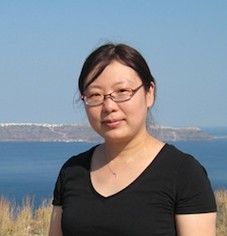 Dr Ye Yinghui was part of the team at the Women's Hospital, Hangzhou, China who carried out an evaluation study on two different formulations of slow-freezing media for cleavage stage embryo cryopreservation. The work was funded by the China Natural Science Foundation and China National Key Technology Support Program. Dr Ye graduated from Zhejiang University School of Medicine in 1995, got her PhD in 2008 and studied gamete and early stage embryo development in Japan as a research fellow in Akita University via a medical scholarship. Currently she works on IVF-ET, ICSI, embryo freezing and Recovery, PGD etc and she uses a Planer Kryo 360 freezer.
Dr Ye Yinghui was part of the team at the Women's Hospital, Hangzhou, China who carried out an evaluation study on two different formulations of slow-freezing media for cleavage stage embryo cryopreservation. The work was funded by the China Natural Science Foundation and China National Key Technology Support Program. Dr Ye graduated from Zhejiang University School of Medicine in 1995, got her PhD in 2008 and studied gamete and early stage embryo development in Japan as a research fellow in Akita University via a medical scholarship. Currently she works on IVF-ET, ICSI, embryo freezing and Recovery, PGD etc and she uses a Planer Kryo 360 freezer.
Some IVF labs prefer to cryopreserve pronuclear stage and cleavage stage embryos using conventional slow-freezing. Dr Ye and her co authors say that in their clinic, they consider slow freezing more practical. Additionally, using the new Vitrolife media especially formulated for slow freezing, their study found that embryo survival rate increased as did the clinical pregnancy rate per embryo transfer. Freezing and thawing cleavage stage embryos using the modified protocol and new formula - MOPS-buffered media containing amino acids - the researchers found that they could achieve the same high survival rates with traditional slow-freezing method as with vitrification. The improved level of dehydration combined with the cooling and warming rates of their protocol resulted in a combination which gave excellent survival.
Dr Ye and the team conclude " ... we can continue using our freezing machine and can spend time on other things in the lab while the machine is running. For the time being, we find slow freezing with this modified method very effective" and it frees up time during busy working days.
Dr Ye is also a committee member of the Medical Genetic Study Group of China Medical Association, the Zhejiang Medical Genetic Study Association, and Specialist of the Zhejiang ART Quality Control Society. She has authored and co-authored more than ten SCI articles.

